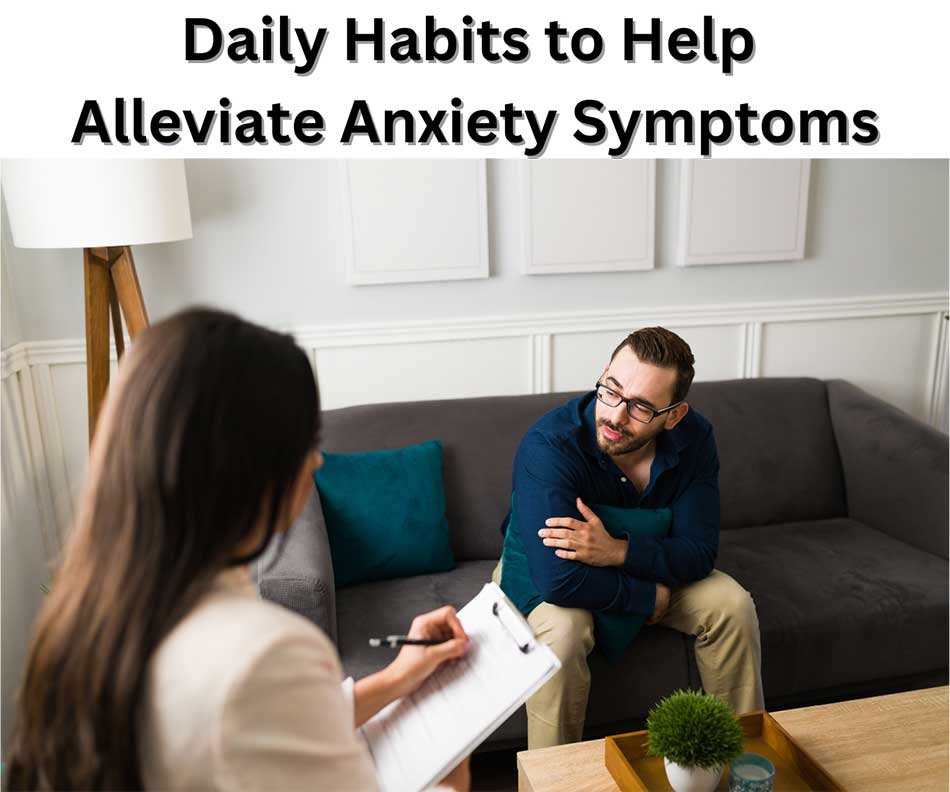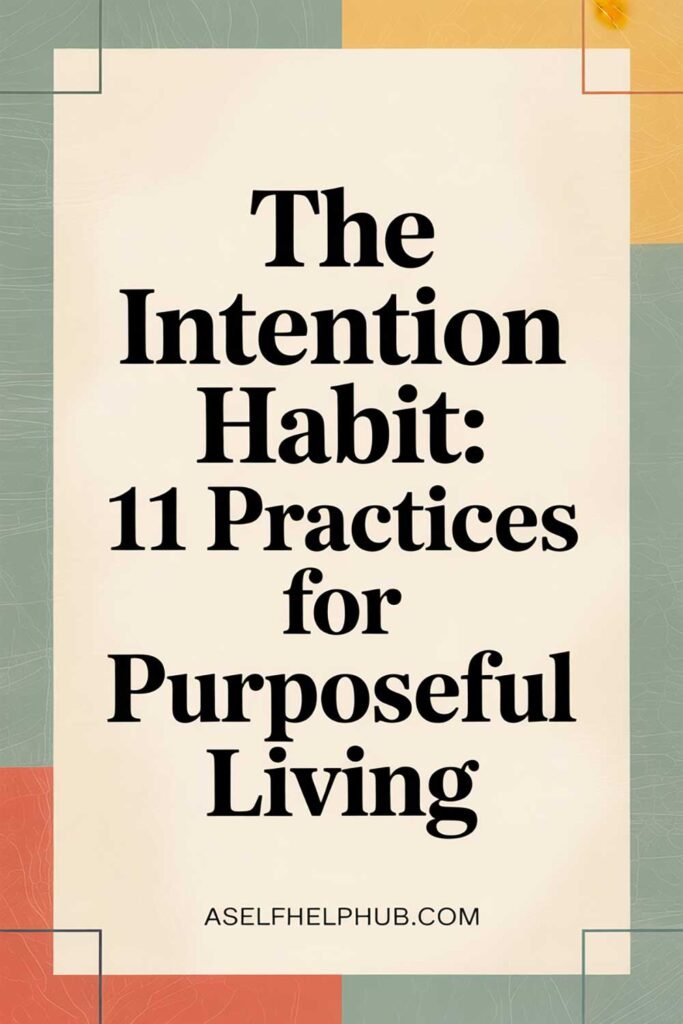
Daily Habits to Help Alleviate Anxiety Symptoms
Anxiety can feel overwhelming, but incorporating simple, consistent habits into your daily routine can make a significant difference. These habits can help manage symptoms, reduce stress, and foster a sense of calm and control over your life. By prioritizing your mental health through intentional actions, you can create a supportive environment for your well-being.
In this article, we’ll explore daily habits that can help alleviate anxiety symptoms and improve overall mental health.

Why Daily Habits Matter
Building healthy habits provides structure and stability, both of which are essential for managing anxiety. Regular practices:
- Reduce Stress: Prevent feelings of overwhelm by creating predictability in your day.
- Promote Resilience: Equip you with tools to handle anxiety-provoking situations.
- Enhance Mental Health: Foster a positive mindset and reduce negative thought patterns.
Daily Habits to Ease Anxiety Symptoms
1. Start Your Day with Mindfulness
Mindfulness helps ground you and sets a calm tone for the day ahead. Try:
- Meditation: Spend 5-10 minutes focusing on your breath or a calming mantra.
- Gratitude Practice: Reflect on three things you’re grateful for each morning.
- Journaling: Write down your thoughts to clear your mind and prioritize your day.
2. Maintain a Balanced Diet
What you eat impacts your mood and energy levels. Incorporate:
- Foods rich in omega-3 fatty acids, like salmon and walnuts, to reduce inflammation.
- Whole grains and vegetables for sustained energy.
- Avoid excessive caffeine and sugar, which can heighten anxiety symptoms.
3. Stay Active
Exercise releases endorphins, the body’s natural stress relievers. Aim for:
- 30 minutes of moderate exercise, such as walking, yoga, or cycling.
- Activities you enjoy to make movement a regular part of your routine.
4. Prioritize Quality Sleep
Sleep plays a crucial role in managing anxiety. Improve your rest by:
- Sticking to a consistent sleep schedule.
- Avoiding screens at least an hour before bed.
- Creating a relaxing bedtime routine, such as reading or listening to soothing music.
5. Practice Deep Breathing
Deep breathing activates the parasympathetic nervous system, which helps calm your body. Try:
- 4-7-8 Technique: Inhale for 4 counts, hold for 7, and exhale for 8.
- Belly Breathing: Focus on expanding your diaphragm as you inhale deeply.
6. Limit Screen Time
Excessive screen time can increase anxiety. Reduce exposure by:
- Setting screen-free zones or times, especially during meals and before bed.
- Using apps to monitor and limit daily screen usage.
7. Stay Connected
Social connections provide emotional support and a sense of belonging. Make time for:
- Regular calls or visits with friends and family.
- Joining a club, group, or community activity to meet like-minded individuals.
8. Set Boundaries
Protect your energy by:
- Saying no to commitments that don’t align with your priorities.
- Creating a healthy work-life balance to prevent burnout.
9. Focus on Gratitude and Positivity
Shifting your perspective can reduce anxiety. Each evening, reflect on:
- Positive moments from your day.
- Small achievements or acts of kindness.
10. Seek Professional Help if Needed
If anxiety symptoms persist or worsen, don’t hesitate to seek support from a therapist or counselor. Professional guidance can provide tailored strategies to help you manage anxiety effectively.
Picture This
Imagine waking up each morning with a sense of calm and purpose. You start your day with a few deep breaths, followed by a mindful reflection on what you’re grateful for. As the day unfolds, you feel in control, supported by healthy meals, moments of movement, and meaningful connections. By evening, you wind down peacefully, knowing you’ve taken steps to nurture your mental well-being.
Over time, these habits become second nature, transforming how you manage anxiety and approach each day with confidence and resilience.






